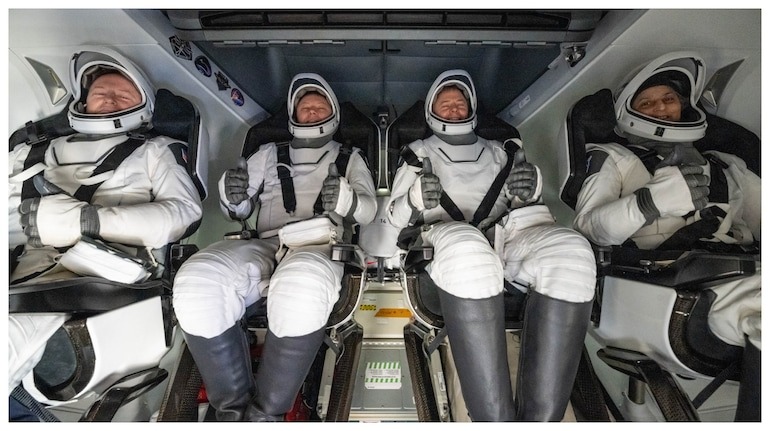
Seeing astronauts floating weightlessly inside the International Space Station (ISS) may seem fascinating, but prolonged exposure to zero gravity has significant effects on the human body. When astronauts return to Earth, they often experience dizziness, nausea, unstable movement, and other physical challenges.
Recently, NASA astronauts Sunita Williams and Butch Wilmore, along with Russian cosmonaut Aleksandr Gorbunov, returned to Earth aboard SpaceX’s Dragon spacecraft after an extended mission. Originally planned for eight days, the mission for Williams and Wilmore lasted over nine months due to technical issues with the Boeing Starliner capsule.
How Space Travel Affects Astronauts' Bodies
1. Difficulty Walking and Sensory Disorientation
Astronauts frequently report difficulty walking, dizziness, and balance issues upon returning to Earth. The vestibular system, located deep inside the ear, helps the body maintain balance. However, in microgravity, the signals sent to the brain change, leading to space sickness.
Upon return, astronauts experience gravity sickness, causing nausea and difficulty standing or walking. To prevent injuries, they are often seated immediately after landing for safety.
Fact: Astronauts also experience "baby feet", where the soles of their feet lose their thick skin and become soft, similar to a newborn’s.
2. Changes in Blood Flow and Cardiovascular System
In space, fluid shifts from the lower body to the upper body, making astronauts appear bloated. On Earth, gravity helps regulate blood circulation, but after prolonged space travel, astronauts often experience orthostatic hypotension, a condition where they feel dizzy upon standing due to difficulty in blood distribution.
The Japanese Aerospace Exploration Agency (JAXA) explains that in space, blood is evenly distributed, but upon return, gravity causes blood to rush downward, leading to dizziness.
3. Bone Density and Muscle Loss
One of the most severe effects of weightlessness is bone and muscle deterioration. NASA studies reveal that astronauts lose 1% of bone density per month in space if they do not follow strict exercise routines.
To counteract this, astronauts aboard the ISS follow a daily two-hour exercise regimen using treadmills and resistance training equipment. Without these workouts, returning astronauts would struggle to stand or walk properly after extended space missions.
4. Changes in Speech and Sensory Perception
Astronauts must also adapt to sensory changes after space missions. Canadian astronaut Chris Hadfield reported experiencing a "weightless tongue" upon his return from space in 2013.
“Right after I landed, I could feel the weight of my lips and tongue, and I had to adjust how I was speaking,” Hadfield shared.
5. Suppressed Immune System and Increased Health Risks
Studies show that space travel can weaken the immune system, making astronauts more vulnerable to infections. The European Space Agency (ESA) notes that while immune cells behave abnormally in space, no severe infections have occurred aboard the ISS.
However, astronauts undergo strict medical evaluations before and after missions to monitor their health and prevent long-term complications.
How Astronauts Adapt After Returning to Earth
Astronauts need several weeks to readjust to Earth's gravity. NASA, JAXA, and other space agencies conduct post-mission rehabilitation programs, which include:
- Physical therapy to restore muscle strength and balance
- Regular medical checkups to monitor bone density and cardiovascular health
- Nutritional support to regain lost minerals and vitamins
Returning astronauts gradually retrain their bodies to function under normal gravity, ensuring a smooth transition back to daily life.
Read More: The Ultimate Gujiya Storage Guide How to Make Your Festive Treats Last Longer

 Share
Share
_1152292510_100x75.jpg)

_1445939941_100x75.jpg)
